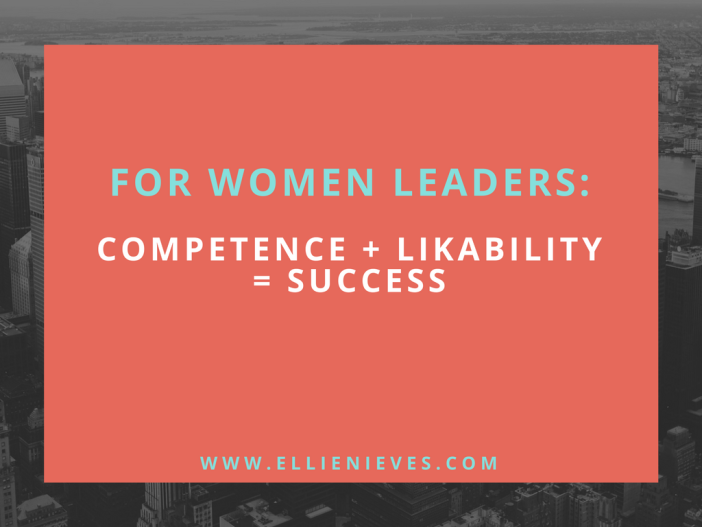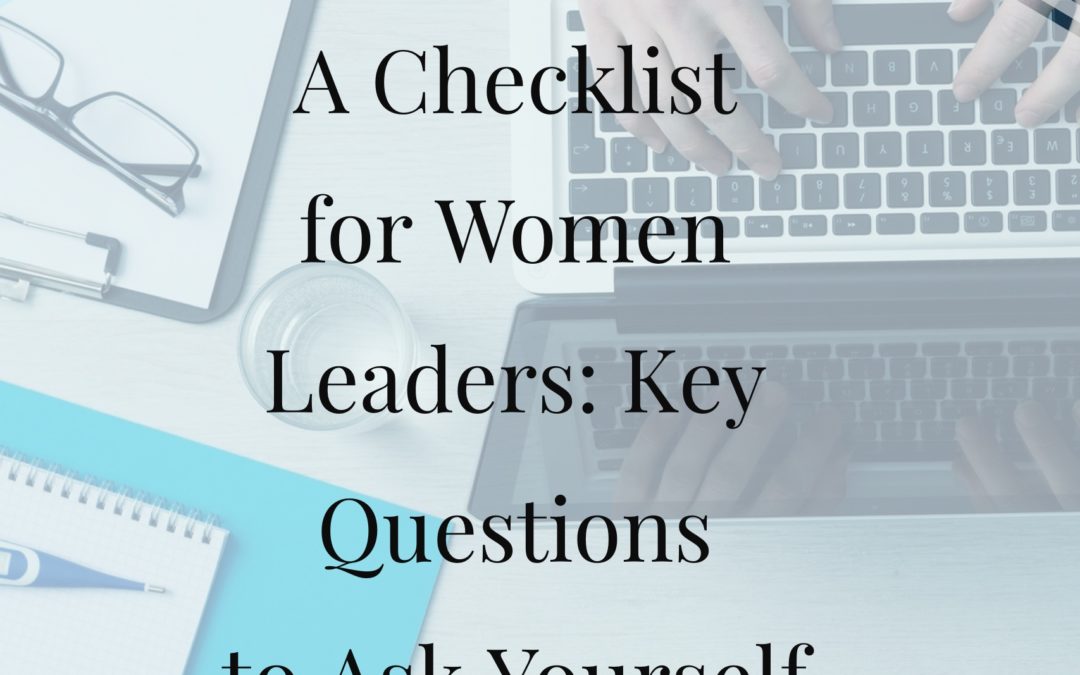
by Ellie Nieves | Leadership Strategies for Women
I recently interviewed author Julia Mateer.
Julia just released her book, Lifegiving Leadership: A Woman’s Toolbox for Leading. She is also the co-founder of Generation Eve, an online community for women focusing on leadership, relationships, and parenting. She is also a wife, mother, and licensed mental health therapist.
During our interview, Julia shared about her background as a mental health therapist in a private practice for 10 years. Her main focus was working with at-risk adolescent girls. Over the years, she transitioned into becoming a full-time pastor. For the past four years, she has directed small groups at a large church in her area. She focuses on writing and maintaining her relationship with her husband of 33 years. She has three adult children and one grandchild.
Julia was inspired to write her book, Lifegiving Leadership, after finishing up her career as a therapist working with women facing clinical and spiritual issues. Largely influenced by her Christian faith, Julia observed her patients with a unique perspective. “One of the things that I noticed caused women the most heartbreak was relationships, particularly relationships with other women,” Julia said. She considers this a point that many Christian women struggle with and noticed many have trouble finding the support and encouragement they need.
The purpose of her book is to help these women the tools to develop healthy, lifegiving environments within the church setting so fellow women can find healthy relationships and opportunities to minister and impact people’s lives with the love of Jesus.
Tools to Help Women Lead
“For us to be able to lead others, we have to be able to lead ourselves,” Julia said. In her book, she covers several ways to accomplish this:
- Develop your observational skills
- Develop your ability to find quiet and stillness in a busy world
- Be willing to seek help for any “heart blockages” we have that might inhibit our ability to lead from a healthy place.
- Learn how to develop a healthy team and how to affirm and bless your team
- Learn how to foster good relationships with members of your team
- Learn how to be a champion for the women you’re mentoring and developing
Leadership Goals and the Challenges They Bring
Julia says the main challenge facing women leaders is balancing family life with leadership goals. As she began developing as a leader, she said one of her biggest struggles was “being able to keep the integrity of my family while I was going to graduate school, while I was taking on more responsibility in ministry, and staying before the Lord to protect my heart and making sure I was following His leading, too.”
Another challenge facing women leaders is keeping themselves healthy physically, emotionally, and spiritually in high-stress roles.
Faith and Career Goals
Most of Julia’s goals are directly influenced by her relationship with Jesus Christ. She became a Christian at age 19. “My goal since then is to filter everything I do through Him,” she said. This impacts every area of her life, including her roles as a wife, mother, therapist, writer, pastor, and leader. It influences how she leads and how she respects others. It drives her to help others to grow and take their next steps. She wants to lead through the lifegiving love of Jesus, which inspires her to show integrity and honor as she fulfills her various responsibilities.
Generation Eve
Julia launched Generation Eve, or GenEve, a little over a year ago. The idea stemmed from a desire for an online community that could foster authentic conversations with women about important issues facing them every day: what it’s like to be a woman leader and the challenges that brings, issues in relationships, parenting issues, and various faith topics. The community includes people from all walks of life and many different ethnic backgrounds, each bringing her own perspective to the group. She wants the conversations to be inclusive and encouraging. To learn more about GenEve, visit www.generationeve.com. Julia is in the process of developing several new books about parenting and women’s issues. She also wants to begin hosting live events for her GenEve group.
You can connect with Julia by emailing julia@generationeve.com. To review Julia’s complete list of leadership tools, her book, Lifegiving Leadership: A Woman’s Toolbox for Leading, is available through online book retailers.
You can listen to the full interview on the Leadership Strategies for Women Podcast.

by Ellie Nieves | Leadership Strategies for Women
I recently interviewed Renee Weisman: author, consultant, and former engineer.
Renee Weisman was a distinguished engineer and Director of Engineering at the IBM corporation prior to retiring in 2008. Having spent nearly 40 years in the heavily male dominated semi-conductor engineering industry, often as the only woman, Renee learned firsthand how women can hold themselves back. Renee is the owner of Winning at Work Consulting and the author of the recently-released book, Why Hillary Lost: What Women Can Learn from the 2016 Election. The book focuses on the behaviors women must understand and the biases they must overcome to succeed. She uses the 2016 election to show how the female disadvantage impacted Hillary’s campaign and gives competent women advice on how they can address similar situations. She published her first book, Winning in a Man’s World, in 2008. Renee has two daughters, five grandchildren, and a very supportive husband.
During our interview, Renee shared her experience working in a male-dominated industry. She also explained how this experience gave her a unique insight while witnessing the 2016 presidential election. “I saw Hillary making many of the same mistakes that I’ve spent so much time advising women to avoid,” Renee said. She decided to write a book for women to address the unique challenges Hillary faced as a woman and the lessons all women can learn from her campaign.
Likability vs. Competence Trap
There are two things that occur when women compete for something that’s perceived as a “power-seeking position”:
- We tolerate untrustworthiness and unlikability in a man much more than in a woman
- Competency isn’t necessarily a virtue for a woman. “For a woman, the more successful you become, the less liked or trusted you will be, especially if you’re seeking power,” Renee said.
Renee described several fascinating studies regarding biases related to gender. All these studies show that likability and competence is directly affected by gender, much more than experience or evidence of talent. “We can’t hide behind a curtain at work, and the reality is that the biases are still there, and unfortunately, women have to deal with them,” Renee said.
But Renee remains optimistic. Though the biases are there, they can be managed if they are addressed. “If you ignore them,” Renee said, “they will come back to bite you. They will impact your long-term success in your career.”
So, what can a modern professional woman learn from the 2016 election? Renee provides several pieces of advice:
- If you want to get ahead as a woman, studies and statistics show that it’s more important to be likable than to be competent. “If you’re not trusted and not liked, most people will not care if you’re competent or not,” Renee said.
- Let people know you and be relatable.
- Be more inspiring.
- Avoid being perceived as the “B-words”: bitchy, bossy, bully.
- Find a balance between these perceptions and practice awareness in your behavior.
- Use the correct data. Get your facts straight before you try to convince someone else.
- Get together the right team to work with you and support you. Have a diverse team with many different points of view.
- Understand your audience when you’re speaking.
- Learn how to apologize.
- Address your appearance. “Even today, people judge a woman by how she looks, and then they start listening,” Renee said. “Appearance is critically important, not because you have to look so good, but to make sure appearance is a non-issue. You don’t want to look so different that people are paying attention to what you look like. You want them to pay attention to what you’re saying and doing.”
Renee’s advice would be useful to any woman looking to get ahead in a male-dominated field. Her book, Why Hillary Lost: What Women Can Learn from the 2016 Election, is now available on Amazon Kindle. She has plans to write a new book addressing harassment in the workplace.
You can listen to the full interview on the Leadership Strategies for Women Podcast.

by Ellie Nieves | Leadership Strategies for Women
Why do some women succeed while others fail?
How do successful women set the stage for the next promotion, higher salaries, or stellar performance?
Does it take:
- A high IQ?
- Personality?
- Good looks?
- Talent?
Implementation of effective strategies and persistence ultimately determine who’s more likely to succeed. In other words, it’s all about the goals. It doesn’t matter how smart you are. What matters is your ability to set specific goals, seize opportunities and act on them.
Success comes to women who believe they can succeed, but it also requires a specific plan that won’t be abandoned, even during tough times. Winning women also know that success may not come easily, but they remain focused on progress, monitor milestones and recognize what still needs to be done. They don’t let up.
High performing women have grit. They know obstacles are inevitable and find a way around them. They develop their abilities by finding solutions to setbacks. They build willpower by using it like a muscle—anticipating when they’re vulnerable, avoiding temptations, and preparing contingency plans and coping strategies.
Successful women focus on what they will do, rather than what they won’t do — a tactic that fosters positive energy. They know success depends on adapting to challenges and persisting, even when they’re ready to wave the white flag.
Successful women use goals effectively and take them seriously. If you want to increase your likelihood of success, the following leadership strategies are key factors that influence performance. They are relatively straightforward and easy to apply, but don’t skip them because they seem “obvious.”
- Be Specific. Knowing exactly what you want to achieve keeps you motivated. Outline what you must do on a daily basis to realize your desired results. Which actions must you take to be a better manager/spouse/parent/friend or perhaps eat more healthfully? What will success look like when you’re there?
- Seize the Moment. Predetermine when and where you’ll take action to avoid the traps of distractions and other competing commitments. The best tactic is “if/then” planning: If X happens, I will do Y.
- Accurately Gauge the Distance. Decide how often you’ll evaluate your progress. Determine where you’ll gather information: Can you self-assess, or will you need others’ feedback? Create reminders to perform your assessments. To stay motivated, remind yourself of the tasks that remain for goal completion.
- Be a Realistic Optimist. If you’re full of self-doubt, recall some of the goals you’ve achieved in the past and what it took to pull them off. Visualize how you’ll deal with looming challenges. What’s your Plan B? Use if/then planning.
- Focus on Getting Better, Rather Than Being Good. When faced with a new and difficult project, budget the time needed to get a handle on it. It’s OK to make mistakes. Take advantage of others’ expertise and ask for help. Don’t compare yourself to others — only to your past performance. Are you improving?
- Have Grit. Grit is the willingness to commit to long-term goals and endure in spite of difficulties. Improvement is always Successful professionals understand that their abilities are far from fixed. They believe they can improve through practice.
- Strengthen Your Willpower Muscle. Willpower is depleted with use. Rest helps you recover quickly and remain positive. Reinforce your willpower muscle with small tasks: Take the stairs, make your bed, and show up on time.
- Don’t Tempt Fate. If you hang around a barber shop, you’ll eventually get a haircut. Stick with the winners. Avoid thinking you can cheat “just a little.”
- Focus on What You Will Do — Not on What You Won’t Many goals involve not doing something. Framing them in this way strengthens self-sabotaging impulses. Substitute if/then planning: “If I feel the urge to ________, then I will_______ instead.”

by Ellie Nieves | Leadership Strategies for Women
Self-reflection is a key component of leadership development. As career women, working to achieve professional goals while balancing our personal lives, self-reflection allows us to see where we need to adjust. To stay on track, adjustments in our priorities, activities, and schedules are often necessary. The best way to make swift adjustments is to periodically step back and reflect on key leadership areas. Some experts advise doing this every three to six months.
Women leaders should regularly examine three (3) target areas. As you review each of the areas, ask yourself how you’re doing and what you should be doing differently—and be sure to answer truthfully. There are no right or wrong answers, but this process will allow you to make decisions about where and how you need to recalibrate your efforts.
Three areas women leaders should examine are:
- Vision and Goals: Do you have a clear vision of the goals that you want achieve? Have you set S.M.A.R.T. goals. In other words, have you set goals that are specific, measureable, attainable, realistic, and time-based?
- Priorities and Time Management: Does your calendar reflect your priorities? Are you being purposeful about carving out time to take incremental steps towards achieving your goals? Are you eliminating activities from your schedule that don’t align with your goals?
- Self-Care: Are you taking care of YOU? Are you regularly engaging in healthy activities that bring you joy? Are you engaging in and adopting habits that boost your energy and improve your overall health and well-being?
Coming up with good answers is far less important than taking the time to ask yourself hard questions and honestly examine where you need to make changes. Reviewing the suggested areas and asking yourself where you are in each of those areas is intended to spark your thinking. If only a subset of them resonates with you, you may find it more interesting to come up with your own list of leadership areas to consider.
The goal here is to gain valuable insights into how you can stay on track as you develop as a leader. You can use this leadership checklist every few months for self-assessment.








